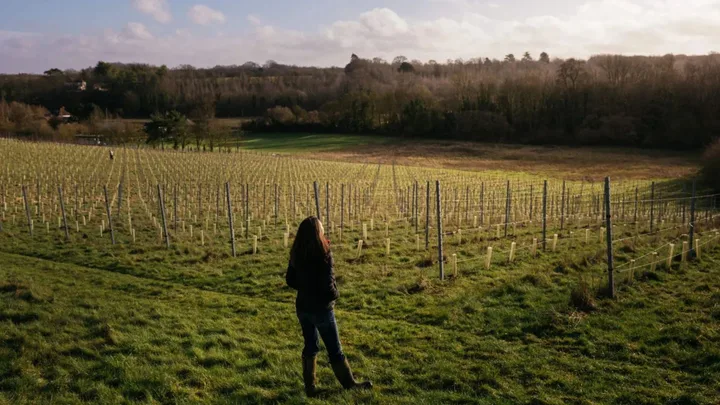In Osaka last night, a group of formidable women gathered to celebrate something timeless: impact. Cartier hosted its third edition of the 2025 Cartier Women’s Initiative Impact Awards, recognising nine extraordinary entrepreneurs from its Cartier Women’s Initiative network who are reshaping our world – one ingenious, compassionate idea at a time.
The Impact Awards are dedicated to former Cartier Women’s Initiative Fellows who have achieved extraordinary, measurable impact. Each of these nine exceptional women impact entrepreneurs has an inspiring story to tell about her journey to success – stories marked by resilience, reinvention and real change.
While the annual Cartier Women’s Initiative Awards spotlight emerging entrepreneurs, the Impact Awards are a celebration of longevity, growth and influence. These are businesses that haven’t just survived; they’ve shifted industries, redefined markets and touched tens of thousands – if not millions – of lives.
Since its inception in 2006, the Cartier Women’s Initiative has empowered over 330 fellows across 66 countries, distributing more than $12 million in support and uniting a global community of change-makers. But these awards are for those who’ve gone further – women whose ideas have flourished into movements, businesses into ecosystems.
This year, the awards recognised nine fellows across three powerful categories: Preserving the Planet, Improving Lives, and Creating Opportunities. The winners were selected not only for the strength of their mission, but for their proven social and environmental impact. Each of the nine awardees received $100,000 in funding, along with bespoke mentorship, media visibility and access to the Cartier Women’s Initiative global community.
At the heart of the “Preserving the Planet” honourees stood nine visionary women whose work proves sustainability is anything but passive.
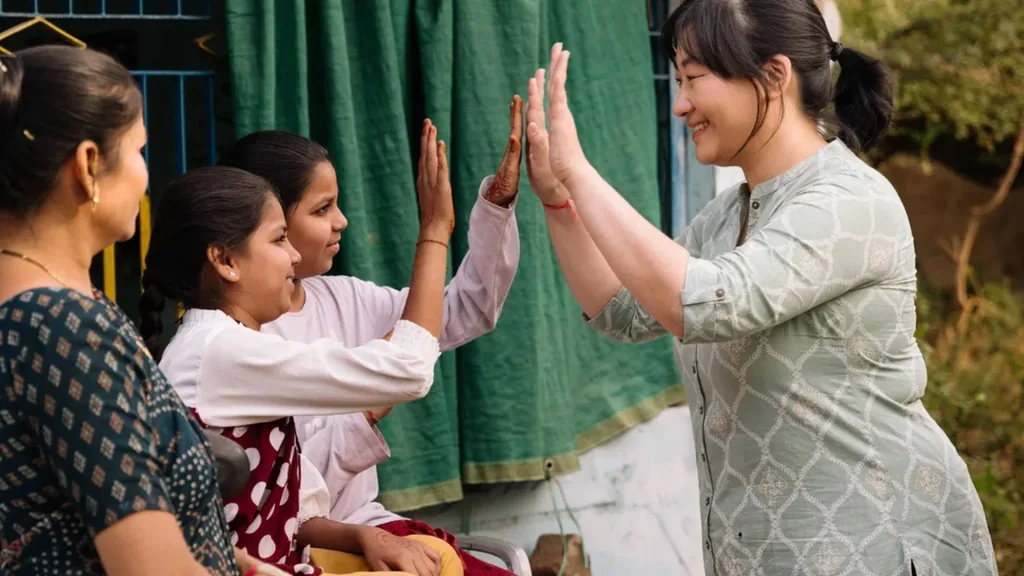
Kristin Kagetsu Is Engineering Dignity, One Pad at a Time
What if a sanitary pad could change the world? Kristin Kagetsu, a 2018 fellow and one of this year’s Impact Awardees, is doing just that with Saathi, a social enterprise manufacturing biodegradable sanitary pads made from banana fibre – waste material that’s now a lifeline.
The stats are staggering. In India, 64% of women lack access to menstrual hygiene products. The result? Millions of girls miss school and women lose workdays, with entire communities falling behind. Add to that the 12.3 billion plastic-laced pads dumped each year, and you have a crisis in both dignity and sustainability.
Kristin, a mechanical engineer from MIT, moved to India with the idea of selling machines to make pads – until she saw the waste problem firsthand. Her pivot was genius: pads made from banana fibre, sourced from local farmers, which biodegrade in just six months. It’s elegant circularity – empowering communities, reducing waste and offering real reproductive freedom.
And Saathi’s impact is holistic. The brand subsidises pads for NGOs, hires and trains underserved women, and now operates in the UK, Kenya and Malaysia. Kristin sums it up best: “The need to preserve our planet is so urgent – we must be bold and ambitious. Our goal is to create a model for sustainable manufacturing that also has a positive impact on the community.”
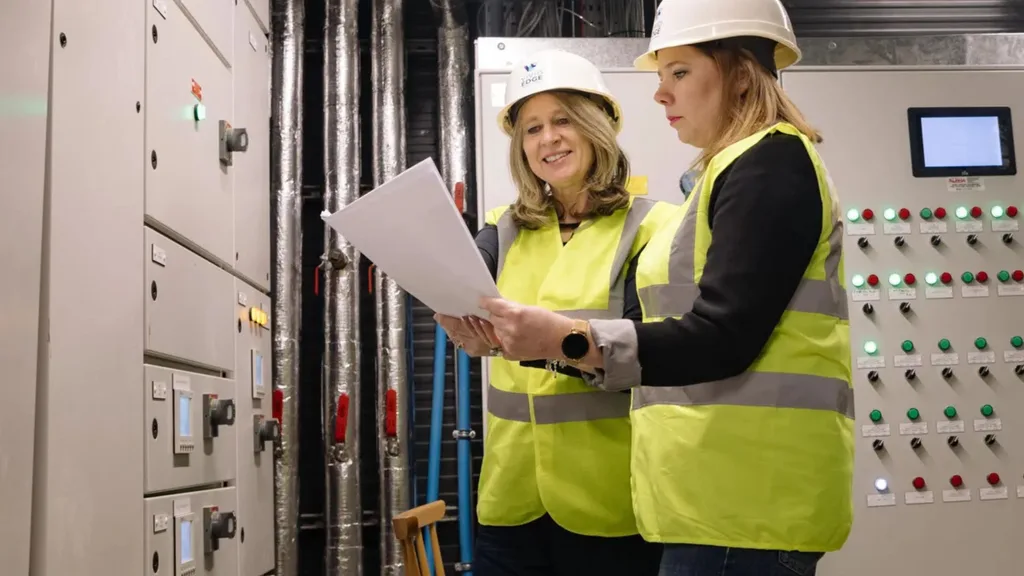
Tracy O’Rourke Is In The Business of Climate Solutions
Tracy O’Rourke has the rare gift of making climate action sound like a boardroom no-brainer. A former corporate exec turned green-tech visionary, Tracy is the founder of Vivid Edge – a company on a mission to make energy efficiency accessible, pragmatic and profitable for organisations of all sizes.
“The golden nugget of climate action is energy efficiency,” she says with characteristic clarity. And she’s right. It’s low-hanging fruit – but one most corporations overlook due to upfront capital costs. That’s where Vivid Edge steps in, offering energy efficiency as a service. Think: solar panels, heat pumps, lighting upgrades – installed, maintained and paid for via service charges that are offset by the energy savings. “Savings can be up to 82% in lighting alone,” she notes.
The results are stunning. Over 36,000 tons of carbon emissions avoided. Enough saved energy to power nearly 30,000 homes for two decades. And better still, healthier, safer buildings for the people who occupy them – especially in under-served regions bearing the brunt of climate change.
But Tracy’s impact goes beyond kilowatts. From launching a local “Green Team” to educating communities on emissions reduction, she leads by example. “I’m hopeful,” she says. “Because we’ve seen what humans can do when we come together in a crisis. It’s time to stand taller and act bolder for the planet.”
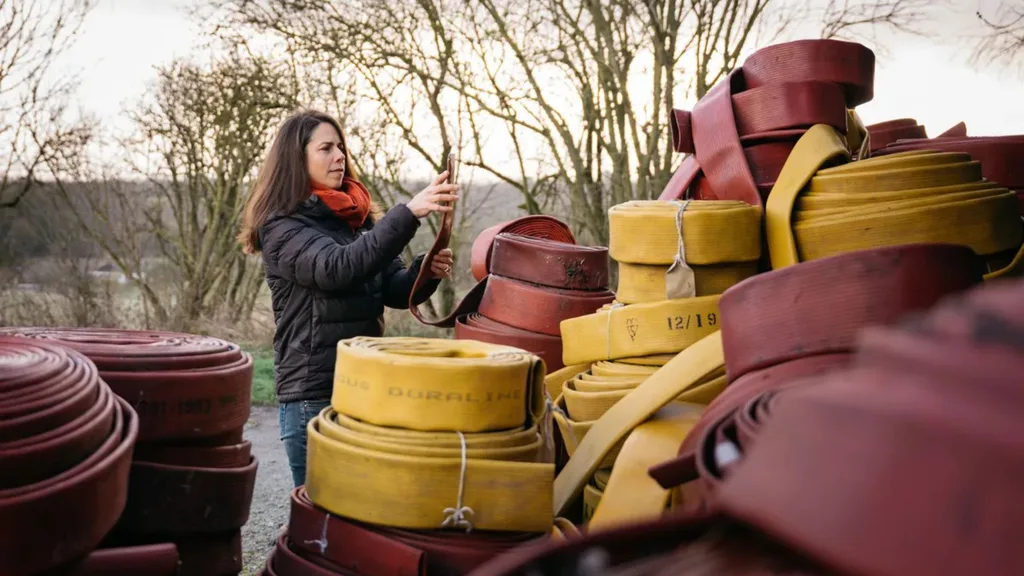
Kresse Wesling Is Turning Waste Into Wonder
Kresse Wesling’s journey from the Canadian Rockies to rural Kent is paved with fire hoses, leather scraps and a deep reverence for the Earth. The 2011 Cartier fellow and 2025 awardee is the co-founder of Elvis & Kresse – the cult British brand transforming industrial waste into luxury accessories with purpose at their core.
Kresse never set out to work in fashion. Waste came first. After discovering that London’s damaged fire hoses were being sent to landfill, she began experimenting. The result? Hard-wearing, design-forward accessories made from reclaimed materials. And with 315 tonnes of waste diverted from landfill (and counting), Elvis & Kresse is as much a climate solution as it is a style statement.
But for Kresse, style must serve. “Growth is less important to me than impact,” she says. As one of the UK’s founding B Corps, her company donates 50% of its profits – over half a million dollars to date – and partners with charities like The Firefighters Charity to fund therapy sessions for first responders.
Her latest evolution? Regenerative farming. Kresse bought a farm to embed sustainability into the soil – literally. From building with straw bales to cleaning wastewater via wetlands, she’s redefining what it means to operate responsibly. “There’s always more to do,” she smiles. “That’s what makes it exciting.”
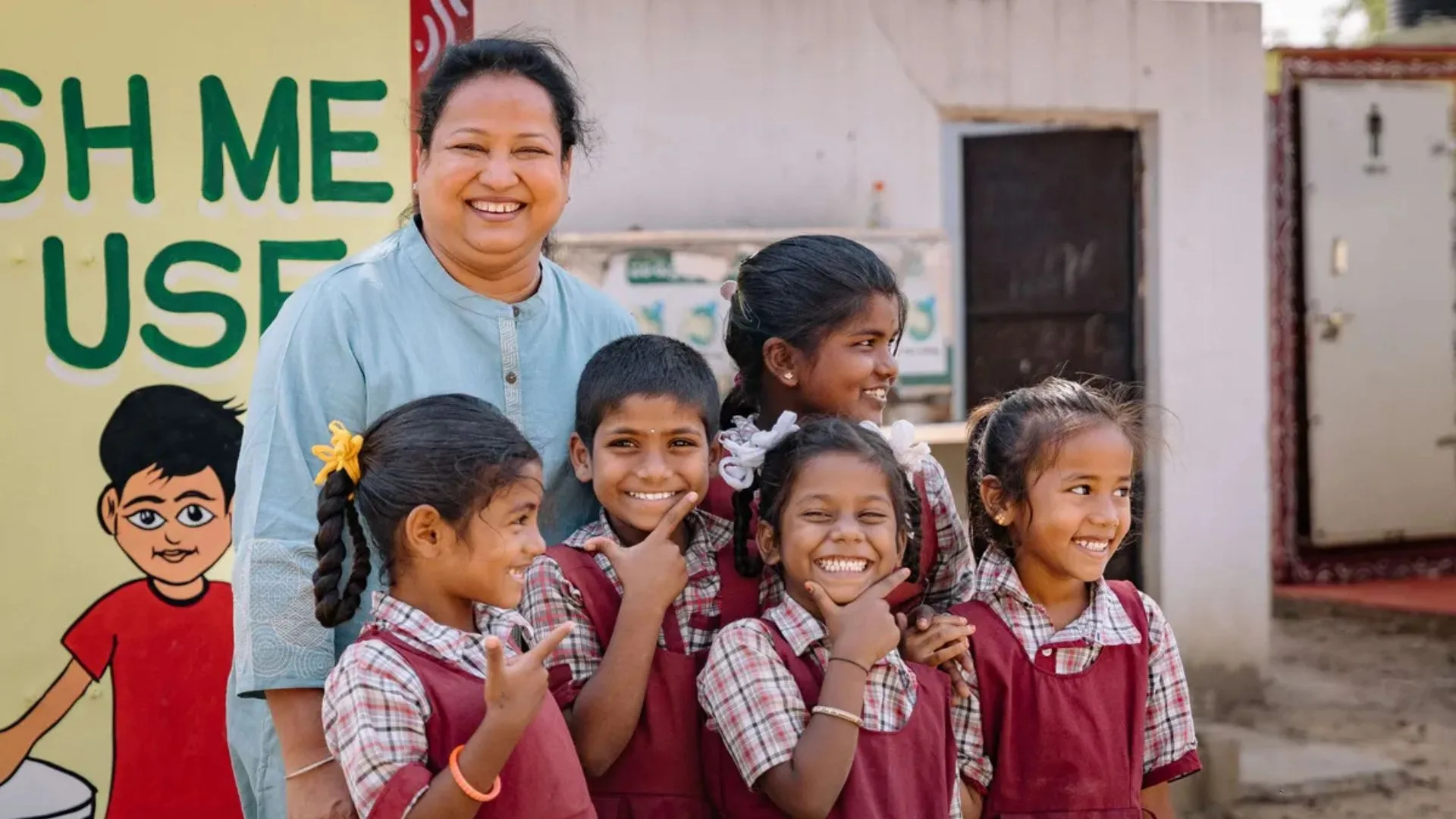
Namita Banka Is The Woman Flushing Away India’s Sanitation Crisis
When Namita Banka joined the Cartier Women’s Initiative in 2013, she brought with her an unshakable belief: that access to toilets could transform a nation. At the time, 60% of India’s population lacked basic sanitation. Today, open defecation is near eliminated – thanks in no small part to Banka Bio’s innovative biotoilets, which convert human waste into clean water and biogas.
A former office supply executive, Banka’s “aha” moment came while working with Indian Railways, where waste was discharged directly onto tracks. Fast forward to 2025 and her company has installed 30,000 biotoilets across rural India, with 1,500 in schools alone. “I knew I needed thousands of soldiers like me,” she says. “The ripple effect is clear: whole communities have transformed.”
Now the first publicly listed sanitation company in India, Banka Bio is scaling even further – from AI-powered water management systems to sludge treatment plants. But for Namita, water remains sacred. “There’s no future without clean water,” she says. As a woman entrepreneur from conservative Rajasthan, her success also clears a path for others. “I didn’t want to stay at home. I knew my path was different.” Thankfully, she followed it – and took millions with her.
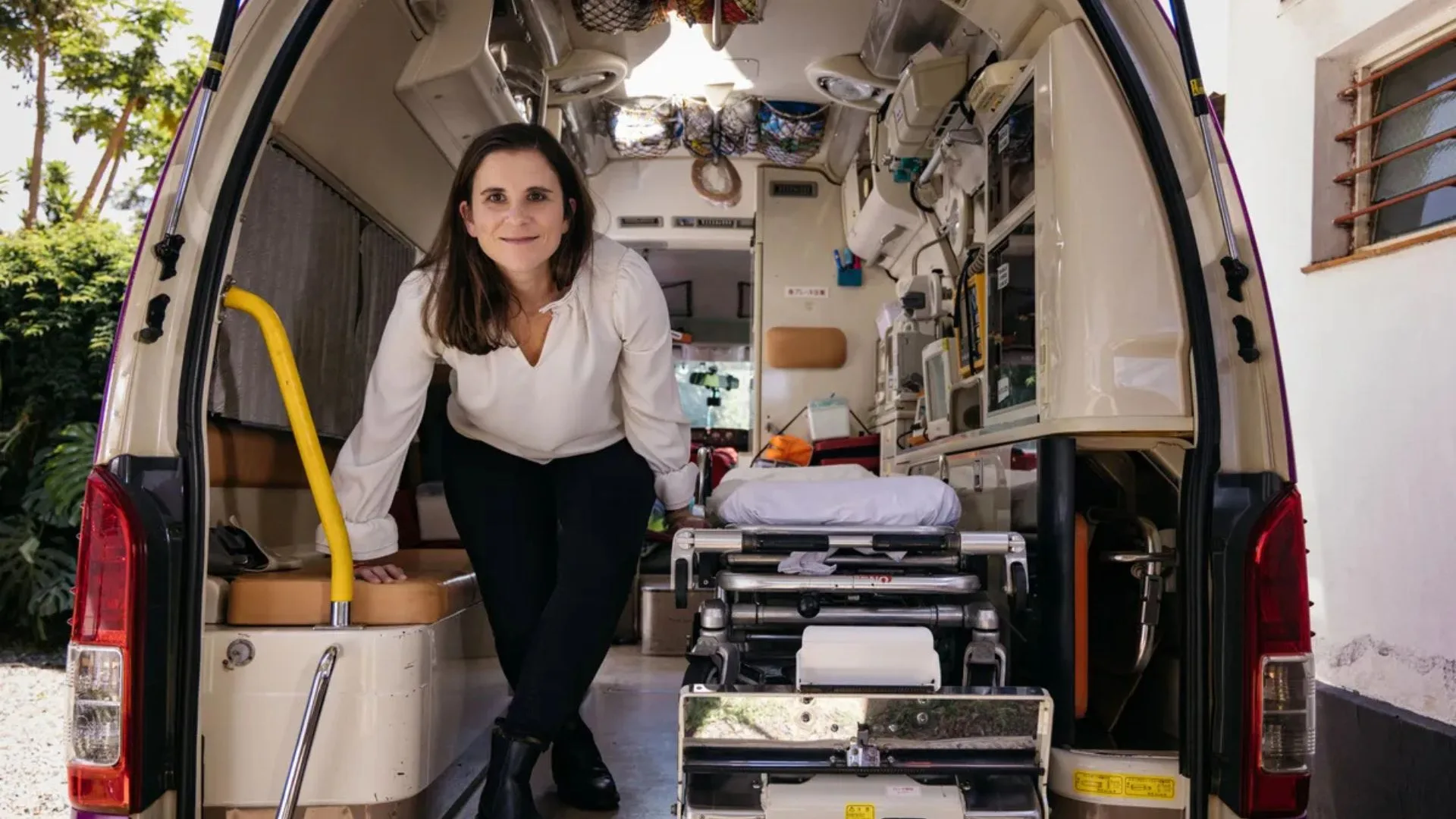
Caitlin Dolkart Is The Woman Bringing Urgent Care to the Unreachable
For Caitlin Dolkart, co-founder of Flare, few moments are more powerful than welcoming a room full of healthy babies – children who survived birth complications thanks to her company’s life-saving emergency service. “Those infants wouldn’t be here without timely care,” she says. “And in much of Africa, that care simply doesn’t exist.”
Dubbed the “Uber for ambulances,” Flare connects users across East Africa to emergency responders via a single number and real-time tracking app. Before its 2017 launch, patients in Kenya faced agonising delays – sometimes hours – to find an ambulance. Today, Flare’s platform Rescue.co has slashed average response times to just 16 minutes, saving thousands of lives.
With over 2 million members and 40,000 rescues to date, Flare’s reach is only growing – expanding into Tanzania and Uganda, and aiming to serve 10 million people by 2030. But Caitlin’s vision goes beyond speed. It’s about equity: “If you can’t afford an emergency, it can bankrupt you.”
Thanks to a low-cost subscription model, Flare brings dignity, access, and hope to patients who previously had none. “Emergency care shouldn’t depend on your location or income,” she says. “It should just be there – for everyone, everywhere.”
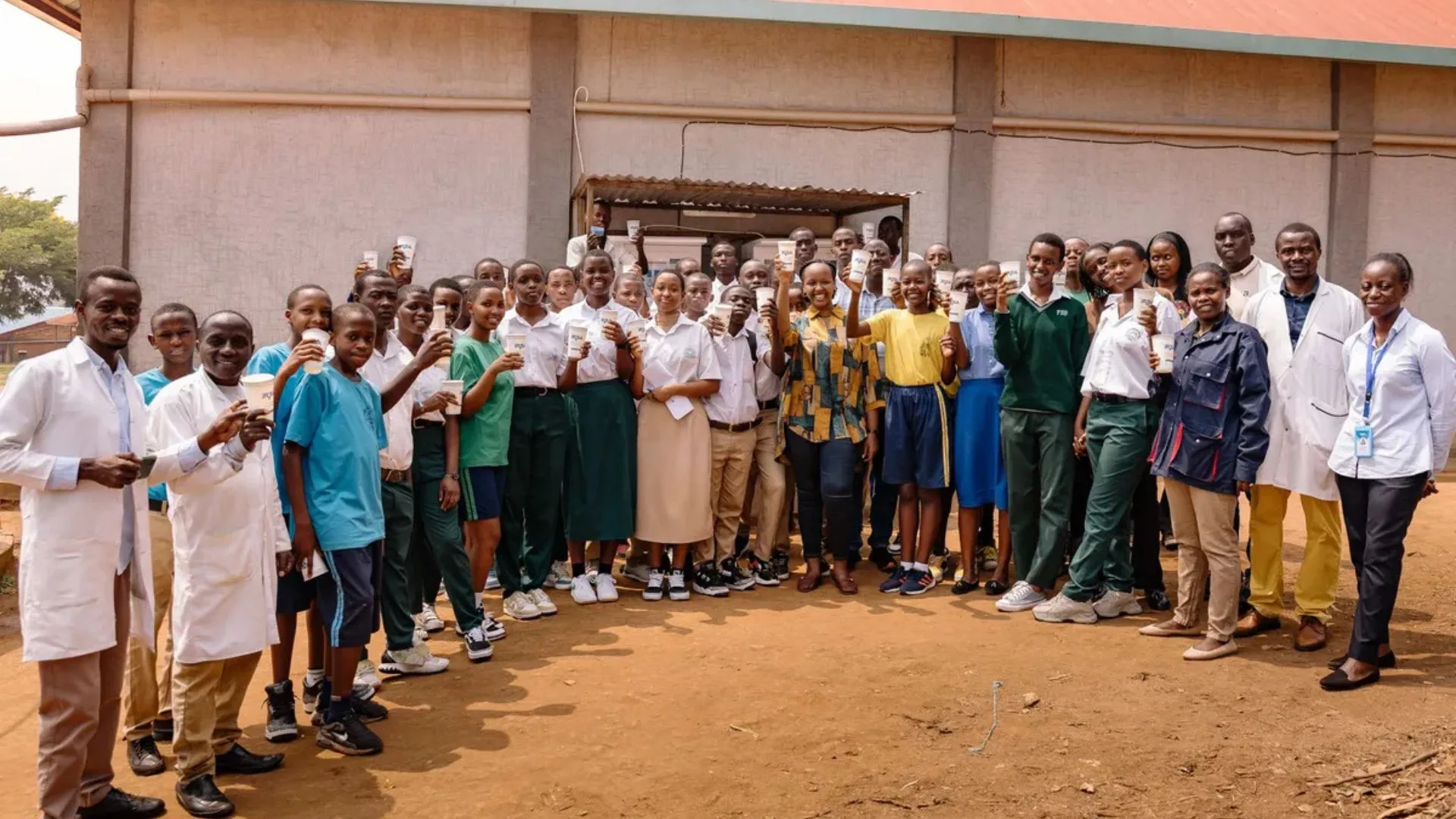
Yvette Ishimwe Is Turning Dirty Water into Dignity and Opportunity
For Rwandan entrepreneur Yvette Ishimwe, clean water isn’t just a need – it’s a right. “No one should get sick or die from something as basic and achievable as safe water,” she says. Through her award-winning social enterprise IRIBA Water Group, Yvette is tackling water insecurity head-on, making potable water affordable and accessible across some of Africa’s most underserved communities.
Inspired by childhood hardship – her family once relied on untreated lake water – Yvette founded IRIBA while still at university. Its flagship product, Tap&Drink, is a smart water ATM that purifies dirty water and dispenses it for a fraction of the cost of bottled water. But it doesn’t stop at health: IRIBA’s franchise model empowers local entrepreneurs, especially women and youth, to run these ATMs and uplift their communities. So far, IRIBA has delivered safe drinking water to over 500,000 people across Rwanda, DRC and CAR, reduced school absenteeism, and created nearly 200 jobs – 86% of them for women. And by 2030, Yvette aims to reach 5 million more. “The future,” she says, “depends on clean water. But it also depends on transforming mindsets – on believing that real change is possible.”
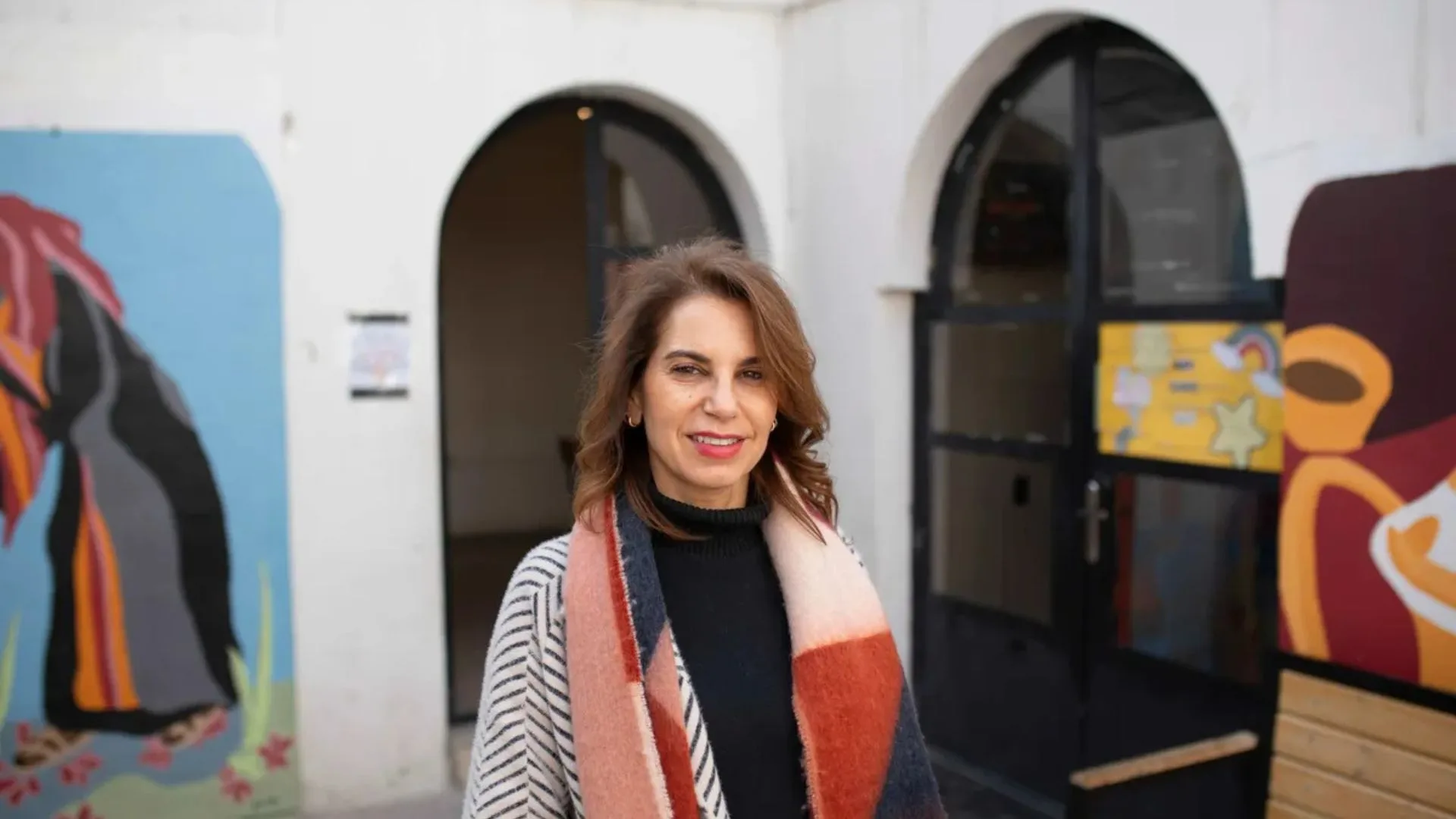
Rama Kayyali Is Empowering a Generation Through the Language of Learning
For Rama Kayyali, literacy isn’t just about reading – it’s about rewriting futures. As CEO of Jordan-based edtech company Little Thinking Minds, she’s tackling the region’s deepening education crisis, where nearly 70% of children under 18 in the Middle East and North Africa cannot read at grade level. “Reading is the foundation of all learning,” Rama says. “No child should grow up without that right.”
Little Thinking Minds creates engaging, culturally relevant Arabic language platforms that are gamified, adaptive and grounded in evidence. The result? A 25% improvement in literacy outcomes, with over 400,000 students across 11 countries now reading more fluently — and more joyfully.
Arabic’s linguistic complexity means many children speak it but struggle to read or write it. By combining fun, personalised content with teacher training and curriculum alignment, Rama’s approach empowers not just students but entire classrooms — and households. “We’ve seen siblings and even parents start reading too,” she says.
Looking ahead, Rama’s vision includes offline tools for children in conflict zones like Gaza, and harnessing AI to scale impact further. “If we equip a child with literacy, we give them dignity, opportunity and the power to shape their world,” she says.
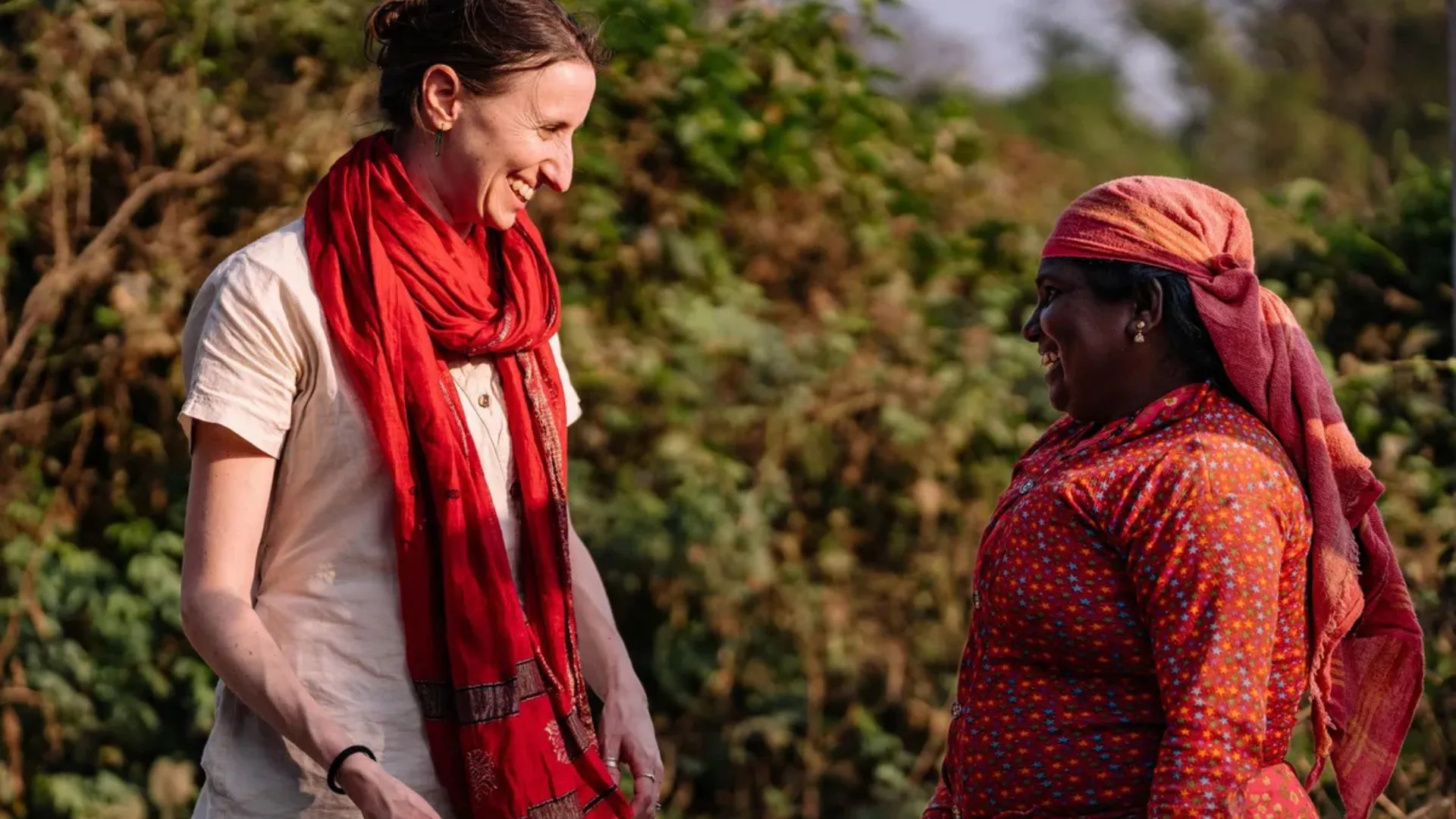
Jackie Stenson Is Turning Frustration into Fuel for Rural Innovation
What began as an idealistic journey across sub-Saharan Africa with a backpack and an engineering degree evolved into something far more impactful for Jackie Stenson. “Frustration is a powerful driving force,” she says with a smile – and for Jackie, it became the catalyst for Essmart, the social enterprise she co-founded to connect rural communities in India with the tools they need to thrive.
Essmart tackles the overlooked but vital problem of last-mile delivery – ensuring that essential goods like solar lanterns or mobile-powered water pumps reach remote retailers and, crucially, come with after-sales service and training. Since 2012, the company has equipped over 1.4 million people with life-enhancing technologies while supporting more than 5,000 small retailers to boost their incomes by 20% on average.
But for Jackie, it’s about more than just products – it’s about dignity, agency, and trust. “We’re not just distributing goods,” she explains. “We’re creating bridges between communities and suppliers, and nurturing local shopkeepers as agents of change.”
The result? Cleaner energy, stronger livelihoods, and a growing network of empowered entrepreneurs rewriting what’s possible in rural India. Proof that sometimes, the most transformative innovations start with a single, stubborn question: Why isn’t this already happening?
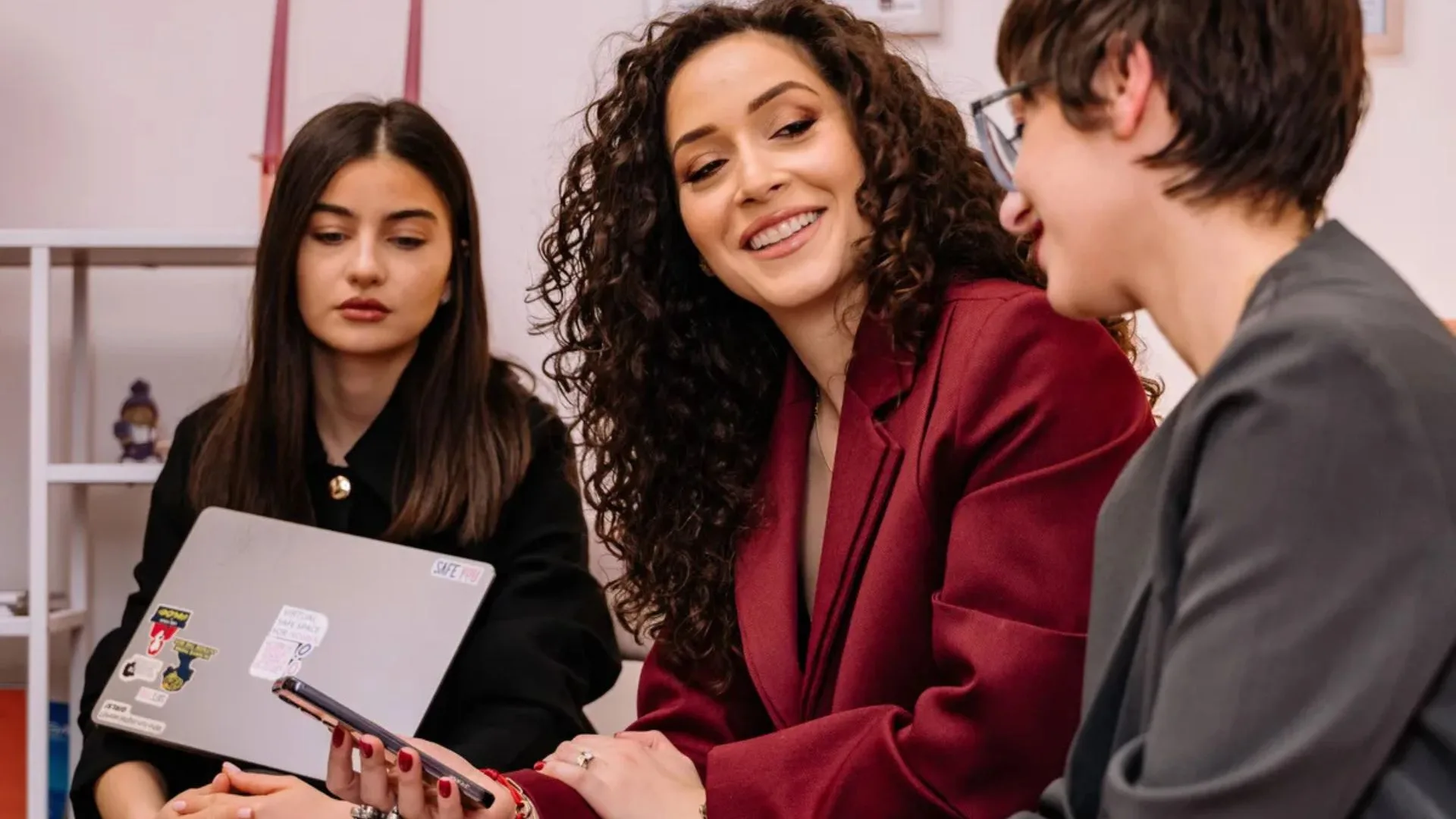
Mariam Torosyan Is Creating a Digital Lifeline for Women in Crisis
When a stranger told Mariam Torosyan that her unborn daughter didn’t “count” because she wasn’t a boy, something shifted. A seasoned human rights expert, Mariam already knew the statistics—one in three women globally experience gender-based violence – but motherhood made it personal. “That moment lit a fire in me,” she says. “I didn’t want my daughter growing up in a world that treated her as less.”
Out of that fire came Safe YOU – a mobile app transforming how women in Armenia and beyond access safety and support. With emergency SOS functions, peer-to-peer discussion forums and access to legal, medical and psychological services, Safe YOU has already helped over 44,000 women in three countries. Its emergency button has been activated more than 31,000 times.
But behind those numbers are real lives, like Anoush’s—who escaped two decades of abuse thanks to a single press of the app. “When women feel safe again, they remember who they wanted to be,” says Mariam.
With plans to scale globally and reach one million women in the next five years, Mariam isn’t just building tech – she’s building freedom, dignity, and a future where no girl grows up believing she’s worth less.
For more information, go to cartierwomensinitiative.com
